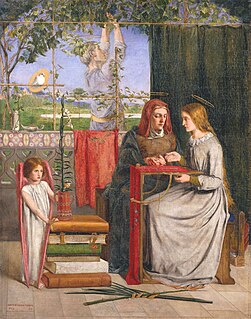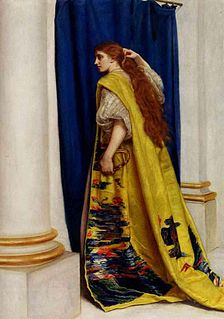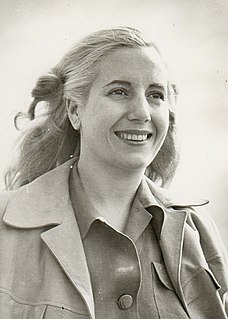 W
WAgnes is a given name derived from the Greek Ἁγνή Hagnḗ, meaning 'pure' or 'holy'. The name passed to Italian as Agnese, to French as Agnès, to Portuguese as Inês, and to Spanish as Inés. It is also written as Agness. The name is descended from the Proto-Indo-European *h₁n̥gʷnis, meaning 'fire,' from which is also the Vedic fire god Agni.
 W
WAmalia is a female given name, derived from the Germanic word amal, meaning "work, activity", specifically the woman's name Amalberga. Its popularity is attributed to the Belgian Saint Amalberga of Maubeuge. The origins of the name Amalia have often been associated with those of Emilia and Emily, both of which in fact originate from the Latin nomen Aemilia, or with Amalthea, originate from the Greek name "tender goddess". In Greece, the name is celebrated on 10 July in honour of Saint Amalia.
 W
WAnna is a Latin form of the Greek: Ἄννα and the Hebrew name Hannah, meaning "favor" or "grace" or "beautiful". Anna is in wide use in countries across the world as are its variants Anne, originally a French version of the name, though in use in English speaking countries for hundreds of years, and Ann, which was originally the English spelling. Saint Anne is traditionally the name of the mother of the Virgin Mary, which accounts for its wide use and popularity among Christians. The name has also been used for numerous saints and queens.
 W
WAnne, alternatively spelled Ann, is a form of the Latin female given name Anna. This in turn is a representation of the Hebrew Hannah, which means 'favour' or 'grace.' Related names include Annie.
 W
WElsa is a female given name mostly used in the Scandinavian countries.
 W
WEmma is a feminine given name. It is derived from the Germanic word ermen meaning "whole" or "universal". Emma is also used as a diminutive of Emmeline, Amelia or any other name beginning with "em".
 W
WEsther is a female given name known from the Jewish queen Esther, eponymous heroine of the Book of Esther.
 W
WEva is a female given name, the Latinate counterpart of English Eve, derived from a Hebrew name meaning "life" or "living one". It can also mean full of life or mother of life. It is the standard biblical form of Eve in many European languages.
 W
WFrauke is a feminine German given name. Notable people with the name include:Frauke Dirickx, Belgian volleyball player Frauke Eigen, German photographer and artist Frauke Eickhoff, German judoka Frauke Finsterwalder, German film director and screenwriter Frauke Liebs (1985–2006), German murder victim Frauke Petry, German chemist, businesswoman and politician Frauke Schmitt Gran, German orienteer Frauke Sonderegger, Swiss orienteer
 W
WGretel is a German shortening of the given name Margarete.
 W
WHilma is a female given name that was in occasional use at the turn of the 20th century. The name was made popular by the German poet Friedrich Gottlieb Klopstock. The name was used in early 19th century Scandinavian literature, probably as a variant of Wilhelmina. It can also be a variant of the male name Hilmar or Hilmer.
 W
WIsolde is a German feminine given name derived from either the Old High German words īs ("ice") and hiltja ("battle"), or the Brythonic adsiltia. The name was further popularized in Germany and German-speaking countries following the opera Tristan und Isolde composed by Richard Wagner between 1857 and 1859, and based on the 12th-century chivalric romance Tristan and Iseult. Wagner subsequently had a daughter in 1865, who was named Isolde von Bülow.
 W
WThe feminine name Jutta is a German form of Judith. It could also derive from the Germanic name Eutha, meaning "mankind, child, descendant", or from a short form of Henrietta.
 W
WLaura is a female given name in Europe and the Americas, of Latin origin, whose meaning is a metonym for a victor, and an early hypocorism from Laurel and Lauren.
 W
WLiesl is a feminine given name of German origin. It is a diminutive of Lieselotte and Elisabeth. Notable people with the name include:Liesl Herbst 1903–1990), Austrian tennis player Liesl Jobson, South African poet Liesl Karlstadt (1892–1960), German actress and cabaret performer Liesl Perkaus (1905–1987), Austrian track and field athlete Liesl Ischia, Australian diver Liesl Seewald, Austrian luger
 W
WMagdalena is the original version of the given name Magdalene, and is used in West Slavic, Hungarian, German, Lithuanian, Dutch, Swedish, Norwegian, Spanish, Georgian, and among other languages.
 W
WMarianne is a female name. It is the French version of the Greek Mariamne, which is a variant of Mary, ultimately from the Hebrew Miriam, Mirjam. In late Greek Marianna (Μαριάννα) was used.
 W
WMiriam is a feminine given name recorded in Biblical Hebrew, recorded in the Book of Exodus as the name of the sister of Moses, the prophetess Miriam.
 W
WPetunia is an English and Scottish feminine given name. It originated in the English language as after a flower.
 W
WRachel, meaning "ewe", is a feminine given name. It is best known as the name of Biblical Rachel.
 W
WSusanne is a feminine given name. It is a German and Scandinavian form of Susanna, with Susann and Suzanne as variants.
 W
WVictoria is an Indo-European feminine first name. It is also used as a family name.
 W
WWilhelmina is a feminine given name, the Dutch and German form of Wilhelm or William, which is derived from the Germanic wil, meaning "will, desire" and helm, meaning "helmet, protection". Wilhelmina was ranked in the top 1000 most popular names for girls in the United States between 1900 and 1940 but is rarely used today. In many European countries, this name is once again very popular. Nicknames for Wilhelmina include, but are not restricted to, Minna, Mina, Minnie, and Willie.